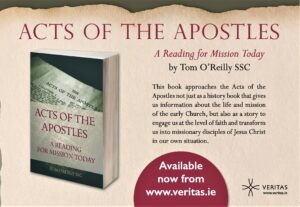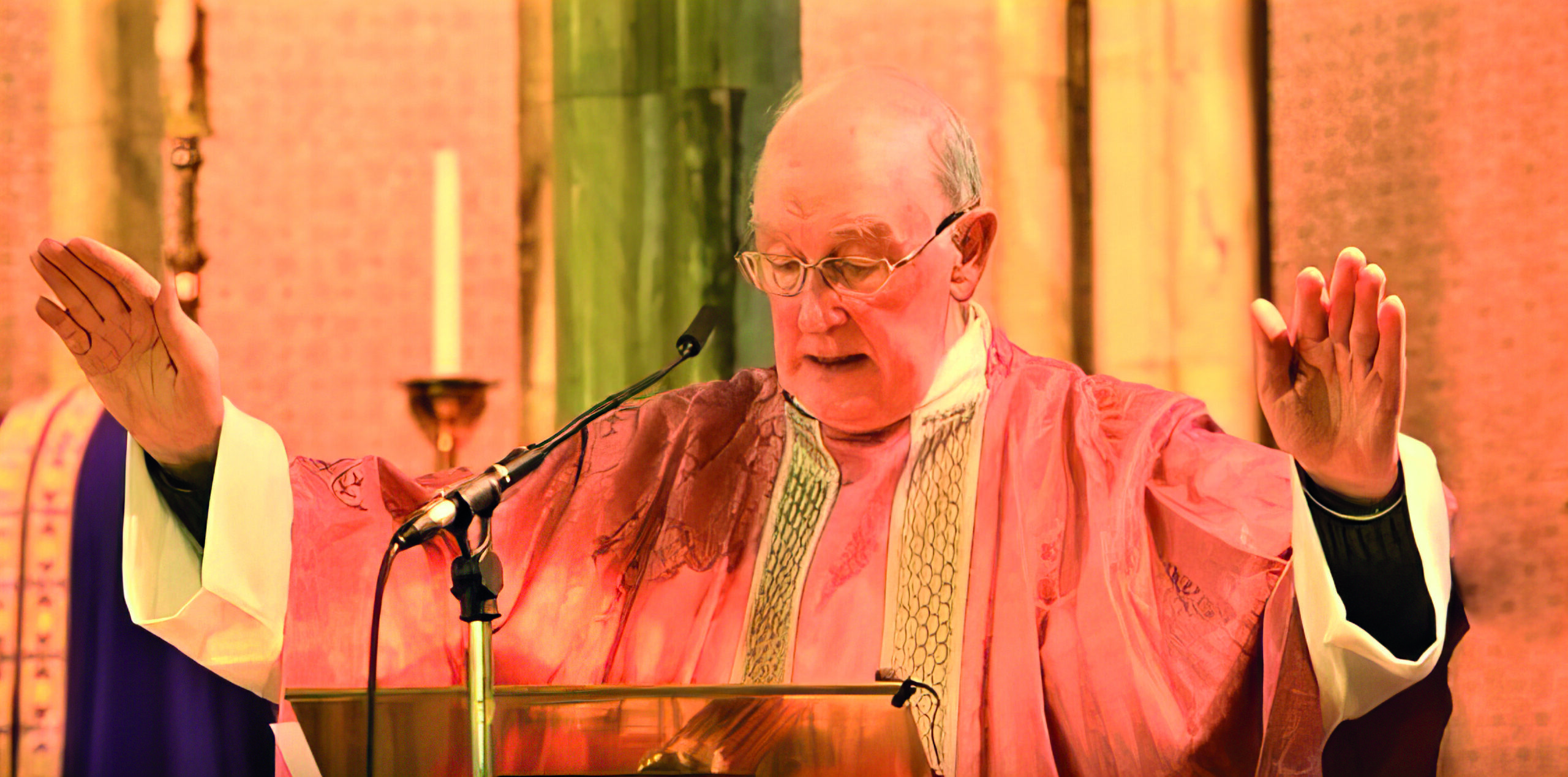Where is the Spirit leading the Church? That is the underlying question in the Acts of the Apostles according to Fr Tom O’Reilly, who suggests it is also the basic question of the synodal process today.
The Vatican does not postpone major events without very good reasons. Just before Pentecost this year, Pope Francis postponed for one year the next Synod due to be held in Rome in October 2022. The theme chosen for the Synod is synodality itself, which Francis says is God’s wish for the Church of the third millennium.
The basic meaning of the word ‘synodality’ is ‘journeying together.’ What is envisaged is a Church in which all the baptised – laity, priests, religious and bishops – journey together in seeking the way forward as we respond to our common vocation as missionary disciples of Jesus Christ.
Francis is saying that the Synod is not just a once-off event in Rome but an extended process in which there is maximum participation of all the faithful. For this reason, he is now providing ample opportunity for conversations at local, national and continental levels before the Rome meeting in 2023. There are three interrelated focal points for the upcoming Synod: communion, participation and mission. In teasing out the meaning and implications of these, we can find inspiration and guidance from the Acts of the Apostles.
Let’s begin with mission. The Church is not a club for the benefit of the members. Its basic reason for being is to continue the mission of Jesus Christ in our world. Jesus gave the gift of the Holy Spirit to the disciples so that they could be his witnesses “in Jerusalem, in all Judea and Samaria, and to the ends of the earth” (Acts 1:8).
On almost every page of the Acts of the Apostles we read the story of Spirit-filled disciples courageously witnessing to the good news of God’s all-inclusive salvation through Jesus Christ. As they faced opposition, they experienced the Spirit empowering them (Acts 5:32).
As they set about their plans, they sometimes came to realise that the Spirit had other plans for them (Acts 16:6-10). They also learned that setbacks, uncertainties and adverse circumstances can be taken up by the Spirit into the working out of God’s plans (Acts 20:22-23). Engaging in the synodal process means trying to discover what the Spirit is doing in the ongoing mission of Jesus today and cooperating with that.
 Mission and communion are inseparably connected. Communion has to do with how we relate to one another in the Church. In the early chapters of Acts, we hear how the Spirit is creating a prayerful, discerning community which is open to what God is doing in its midst and in which there is a great spirit of sharing and practical care for the poor (Acts 2:42-47; 4:32-35). However, we are also told of a counter spirit which sows seeds of division, deceit, hypocrisy, self-glorification, collusion and possessiveness (Acts 5:1-11; 6:1).
Mission and communion are inseparably connected. Communion has to do with how we relate to one another in the Church. In the early chapters of Acts, we hear how the Spirit is creating a prayerful, discerning community which is open to what God is doing in its midst and in which there is a great spirit of sharing and practical care for the poor (Acts 2:42-47; 4:32-35). However, we are also told of a counter spirit which sows seeds of division, deceit, hypocrisy, self-glorification, collusion and possessiveness (Acts 5:1-11; 6:1).
If Christian mission is about the promotion of loving, compassionate, forgiving and just relationships, then we must be a sign of that by the way we relate to one another in the Church. In a world where people are often divided on the basis of class, culture and race, we need the witness of Christian communities in which people with different backgrounds, cultures and viewpoints can relate in a mutually enriching way. During the synodal process we open ourselves to the Spirit drawing us into open, hospitable communion, where all are included and each one’s contribution is valued.
A synodal Church promotes the participation of all in its life and mission. Here also we can draw inspiration from the Acts of the Apostles. When ministerial structures proved inadequate to meet community needs, “the whole community of disciples” selected seven Spirit-filled persons who were then approved for ministry by the apostles (Acts 6:1-6).
When the apostles and elders met to discuss the implications of the increasing influx of Gentiles into what had been a predominantly Jewish-Christian Church, “the whole church” had a part in reaching basic decisions about Christian identity and communal life (Acts 15:6-29).
These decisions were taken with the guidance of the Spirit (Acts 15:28), who is given to every baptised Christian. Here we are touching on a basic principle of synodality – the sensus fidelium, that is, the instinct of the whole Church in recognising true Christian faith and discerning new ways that the Spirit is revealing to the Church.

Fr Tom O’Reilly with a copy of his new book on the Acts of the Apostles.
Where is the Spirit leading the Church? That is the underlying question in the Acts of the Apostles. It is also the basic question in the synodal process today. This process differs from the parliamentary procedure of debate and argumentation where the loudest or most articulate voices often prevail.
A mind-set interested only in defending positions or pushing agendas is detrimental to the synodal process. A synodal Church is a listening Church in which everyone has something to learn. A synodal Church is a praying Church, open to hear the voice of the Spirit and aware of the prejudices and resistances which make us deaf to the Spirit.
A synodal Church recognises and values different roles in the Church where, in the words of Pope Francis, “the only authority is the authority of service.”
Fr Tom O’Reilly is a Scripture scholar. He holds a degree in scripture studies from the Pontifical Biblical Institute in Rome and has lectured in St Columban’s Seminary, Navan, and in the Kimmage Mission Institute in Dublin. He also worked as a missionary in Pakistan and as regional director of the Columbans in Britain. His new book, ‘Acts of the Apostles – A Reading for Mission Today’ is published by Veritas. www.veritas.ie

